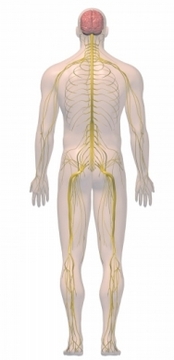Somatization disorder
Description somatization disorder
Patients with somatization disorder are constantly and for many years suffered from many physical symptoms, for which there are no objective reasons, they can not deliver specific diagnosis, which may explain their symptoms. Nonetheless, These symptoms cause distress and may adversely affect the daily life.
If you suspect, that you have this disorder, consult your doctor for further examination.

Reasons for somatization disorder
The cause is not known somatic disorders.
There is no disease, which could explain the symptoms, so upset, believed, due to the mental and emotional (psychological) causes. Often, the symptoms get worse during stressful circumstances or in relation to emotional suffering (eg, loss of a friend, Stress at work), that is, stressful life situations are experienced physically.
Researchers believe, that a role in the emergence of disorders may also play:
- Genetics – Disorder can be transmitted in the family;
- Psychosocial reason – the occurrence of somatization disorder may be due to a number of factors, that include mental and emotional well-being and environment.
Risk factors for somatization disorder
The physical suffering of people with physical disorders usually begin closer to 30, but can also begin in adolescence. Patients may suffer them for many years, and it often leads to many unnecessary medical examinations and treatment.
Factors, which increase the likelihood of developing somatization disorder:
- Low social class with little education;
- Paul – the disorder is more common in women;
- Personal factors – person more likely to develop the disease, very emotional (so-called “theatricality”);
- People with antisocial personality disorder, addiction, anxiety, depressed or having a panic disorder;
- Most can occur in persons, who are unable to express their emotional distress through language (due to neurological disorders or mental development).
Symptoms of somatization disorder
People with somatization disorder complain about many physical illnesses, are associated with different parts of the body. The diagnosis of somatic disorders requires more symptoms (at least three) for a considerable amount of time (at least two years).
Symptoms include:
- Symptoms of pain – they include pain, is tested in any part of the body, including:
- Headache;
- Backache;
- Joint pain;
- Chest pain;
- Irregular heartbeat;
- Pain in the hands and feet;
- Pain in the vagina or penis during intercourse;
- Pain with urination;
- Gastrointestinal symptoms – This includes any problems, but pain in the stomach or intestine, including:
- Nausea;
- Swelling;
- Vomiting;
- Diarrhea;
- Sexual symptoms – This includes any problems, but pain, sexual or reproductive system, including:
- The inability to maintain an erection (men);
- Irregular periods (female);
- Excessive menstrual bleeding (female);
- Neurological symptoms, which include:
- Withdrawal from the psychological balance;
- Paralysis;
- Weakness;
- Swallowing problems;
- Aphonia;
- Inability to control urination;
- Delusions and hallucinations;
- Loss of sensation;
- Unable to feel pain;
- Amnesia (memory loss);
- Blacking-out;
- Temporary deafness;
- Seizures.
People with physical disorders:
- Complain about their symptoms are very dramatic way, but describe them very vague or unclear terms;
- Visited by more than one doctor for diagnosis and treatment of the same symptoms.
It is important to understand, that a person with somatization disorder are not faking or pretending that experiencing physical problems.
Diagnosis of somatization disorder
There is no specific test, to determine, whether or not a person is sick somatic disorders.
The doctor will ask about your symptoms and medical history, Mental Health, perform a physical examination. For a doctor, it is important to rule out other diagnoses, which is sometimes wrongly diagnosed as somatic disorders, including multiple sclerosis, lupus and other endocrine (hormonal) disease.
If the doctor does not find anything serious after these tests, He may refer you to a psychologist or psychiatrist.
Treatment of somatization disorder
The goal of treatment – control the symptoms and to respond to various social situations. It is important to have a long-term relationship with your doctor, who should be empathetic and caring if you have questions.
Treatment options include the following:
- Psychotherapy – you will work with a psychiatrist, psychologist, Social Worker, to find out, how to solve a stressful or painful issues;
- Kognitivnaya povedencheskaya therapy – Consultant on Mental Health will focus on practical ways, allowing to cope with the symptoms;
- Medication – sometimes advised to take anti-depressants (preparations, that relieve depression). If there is an alarm, may be prescribed drugs, that relieve anxiety.
Prevention somatization disorder
To date, no known ways of preventing somatic disorders. To reduce the risk of developing somatic disorders, Follow these steps::
- It is necessary to reduce the amount of stress in your life;
- We need to be aware of their psychological and emotional health;
- Maintain an open and good relationship with your doctor.
